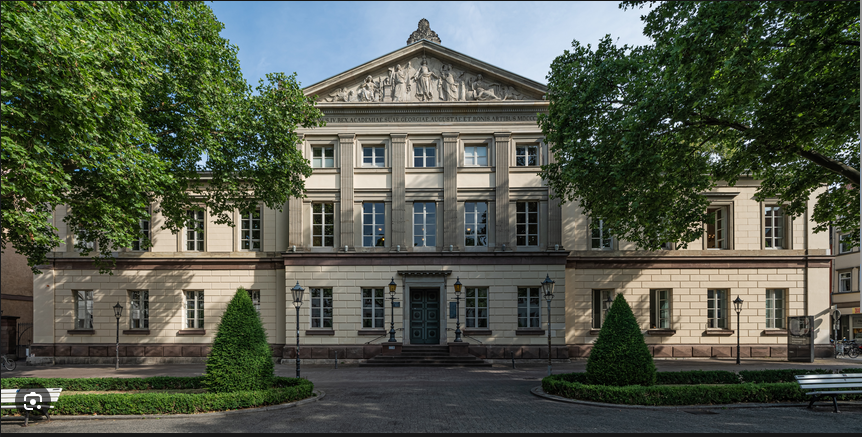Speaker
Description
KEYWORDS
Social sustainability; farm types; professional identities; cultural aspects
INTRODUCTION
The complexity inherent in agrifood systems challenges its sustainable transformation (Lamine, 2015). Studies on sustainability tend to prioritize objective and external indicators, often overlooking the cultural experiences (i.e. values, symbols, identities) which are fundamental to understand agrifood system development (Janker et al., 2019).
Development trajectories of agrifood systems can be classified into two broad types: farms that opt for agro-industrial development adhering to economies of scale based on a productivist paradigm (i.e. entrepreneurial farmers) and multifunctional or post-productivist farms (i.e. peasant farms), based on economies of scope (Huttunen, 2019). However, farm types are quite more diverse (Guarín et al., 2020). Behind every production model lies a system of values, symbols and meanings which forms a part of farmers’ professional identities, and which is transmitted to the next generation by processes of socialisation (Burton, 2004; Letourneau & Davidson, 2022). This ‘system’ underpins farm practices and modes of organisation and gives it coherence and stability when faced with change (Plumecocq et al., 2018). Therefore, farmers’ professional identities play a decisive role in understanding agricultural development in general and the adoption of sustainability goals in particular (e.g. (Burton, 2004; Letourneau & Davidson, 2022).
We explore the components forming farmers’ identities in diverse farming systems and how are valued by them. The aim of the paper is to analyse the emergence of similar rationalities across various types of farms, despite their apparent differences in terms of production and structure. Ultimately, we aim to contribute to (re)designing agricultural policies that facilitate the transition to sustainable systems, considering the inherent diversity of agricultural practice.
METHOD
The research focuses on two study areas: Bajo Cinca, a rural area in Aragon, following a modernisation farming model and Baix Llobregat region in Barcelona, a peri-urban area following a development based on economies of scope. Thirty-one in-depth interviews were conducted with farmers with different profiles. The interviews were analysed using Atlas.ti to identify key components of farmers’ professional identities.
FINDINGS
We identify five key components that shape farmers’ professional identities.
Family farm
There is a self-identification as “family farm”, that appears as something valuable for farmers. However, the value they attach to being a family farm differs not between case studies but within them. For many farmers, when they take over the family farm, they continue the type of farm their parents had. For those, we find a strong symbolic value attached to being a family farm. For others, taking over the farm means a break with the previous generation in the management and the production model of the farm.
Attachment to the fields
The second component of farmer’s professional identities is the attachment to the field and the importance they place on doing agricultural chores. Particularly, they value being in outdoors and the sense of freedom. Therefore, they have a highly negative perception of the increasing amount of time they must spend on bureaucratic tasks or self-commercialization of the product in the case of Bajo Cinca farms. They feel it forces them to change their professional identity from being a “pure” farmer to a “manager”.
Moral economy
Farmers interviewed show a strong market orientation. Many farmers understand profitability in terms of security and stability of their living conditions, not in terms of economic growth. Moreover, beyond economic reasons, the stories show a moral economy, valuing food as a social service and not only as a commodity, despite being in a context of strong commodification of food.
Rural communities
Farmers felt society holds negative stereotypes about agricultural labour. They challenge these stereotypes by presenting themselves as the gatekeepers of the traditional landscape and the food providers of the urban inhabitants. In addition, they experience the threat of larger agricultural companies that displace small farmers in the area. As they do not feel valued by society and fear the further internationalization of the area, there is a strong sense of solidarity among each other.
Environmental sustainability
Environmental sustainability is conceived by some farmers as efficiency and exhaustive control of the production process This is linked with an entrepreneurial professional identity and can be found both in medium and small size farms in Bajo Cinca and Baix Llobregat. While a holistic understanding of sustainability based on agroecological principles is minority is both systems, some farmers carry out different practices that exemplify a middle ground between these two previous conceptualizations.
CONCLUSION
Farmers' professional identities are intricately intertwined with social, economic, environmental, and cultural factors, highlighting the complexity of agrifood systems. The values and meanings of farming are subject to change due to the continuous evolution of agricultural practices on the one hand and in response to changing contexts and challenges they face on the other. This research contributes to demonstrating that the diversity in farmers’ identities does not always align with the diversity of farm types; by contrast, important elements of their professional identities are quite similar between farm types.
REFERENCES
Burton, R. J. F. (2004). Seeing through the “good farmer’s” eyes: Towards developing an understanding of the social symbolic value of “productivist” behaviour. Sociologia Ruralis, 44(2), 195–215. https://doi.org/10.1111/j.1467-9523.2004.00270.x
Guarín, A., Rivera, M., Pinto-Correia, T., Guiomar, N., Šūmane, S., & Moreno-Pérez, O. M. (2020). A new typology of small farms in Europe. Global Food Security, 26. https://doi.org/10.1016/j.gfs.2020.100389
Huttunen, S. (2019). Revisiting agricultural modernisation: Interconnected farming practices driving rural development at the farm level. Journal of Rural Studies, 71, 36–45. https://doi.org/10.1016/j.jrurstud.2019.09.004
Janker, J., Mann, S., & Rist, S. (2019). Social sustainability in agriculture – A system-based framework. Journal of Rural Studies, 65(June 2018), 32–42. https://doi.org/10.1016/j.jrurstud.2018.12.010
Lamine, C. (2015). Sustainability and resilience in agrifood systems: Reconnecting agriculture, food and the environment. Sociologia Ruralis, 55(1), 41–61. https://doi.org/10.1111/soru.12061
Letourneau, A. M., & Davidson, D. (2022). Farmer identities: facilitating stability and change in agricultural system transitions. Environmental Sociology, 8(4), 459–470. https://doi.org/10.1080/23251042.2022.2064207
Plumecocq, G., Debril, T., Duru, M., Magrini, M. B., Sarthou, J. P., & Therond, O. (2018). The plurality of values in sustainable agriculture models: Diverse lock-in and coevolution patterns. Ecology and Society, 23(1). https://doi.org/10.5751/ES-09881-230121

